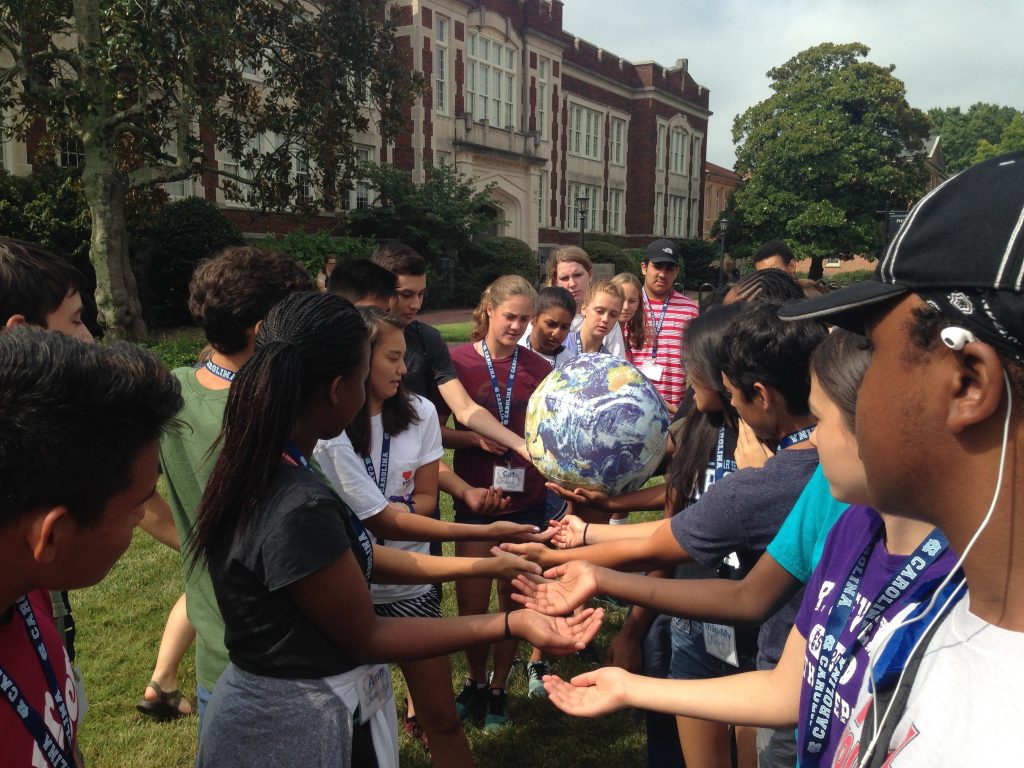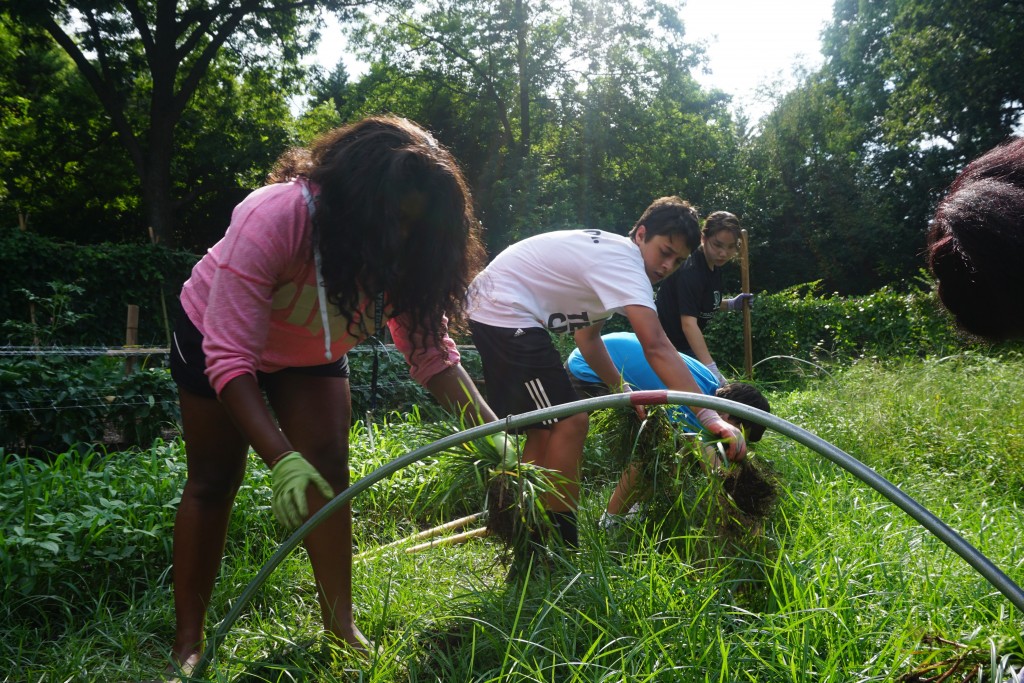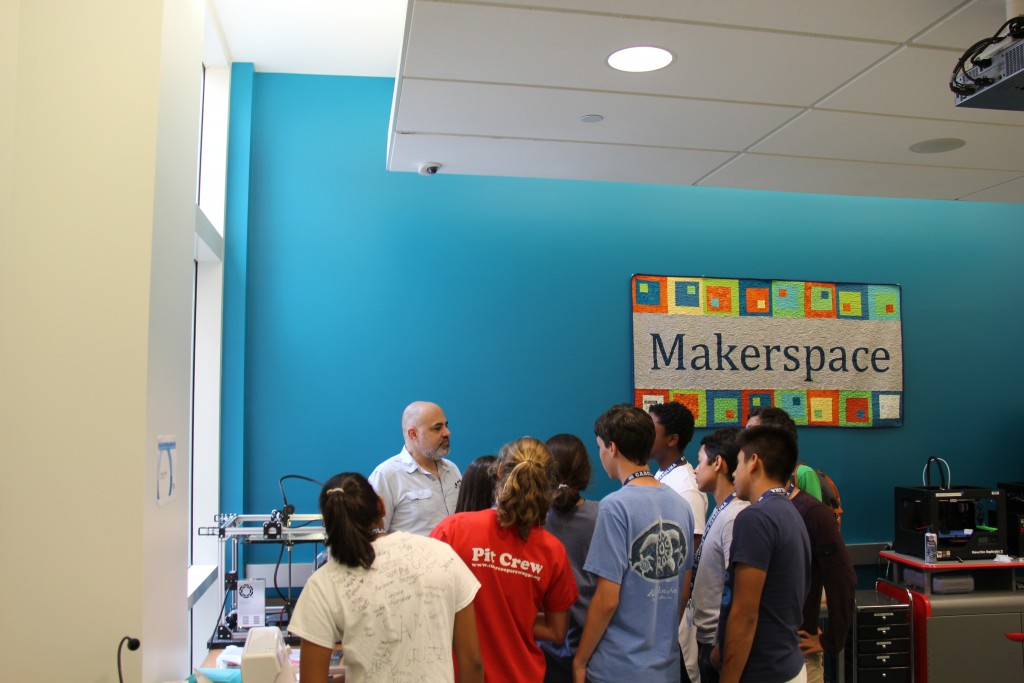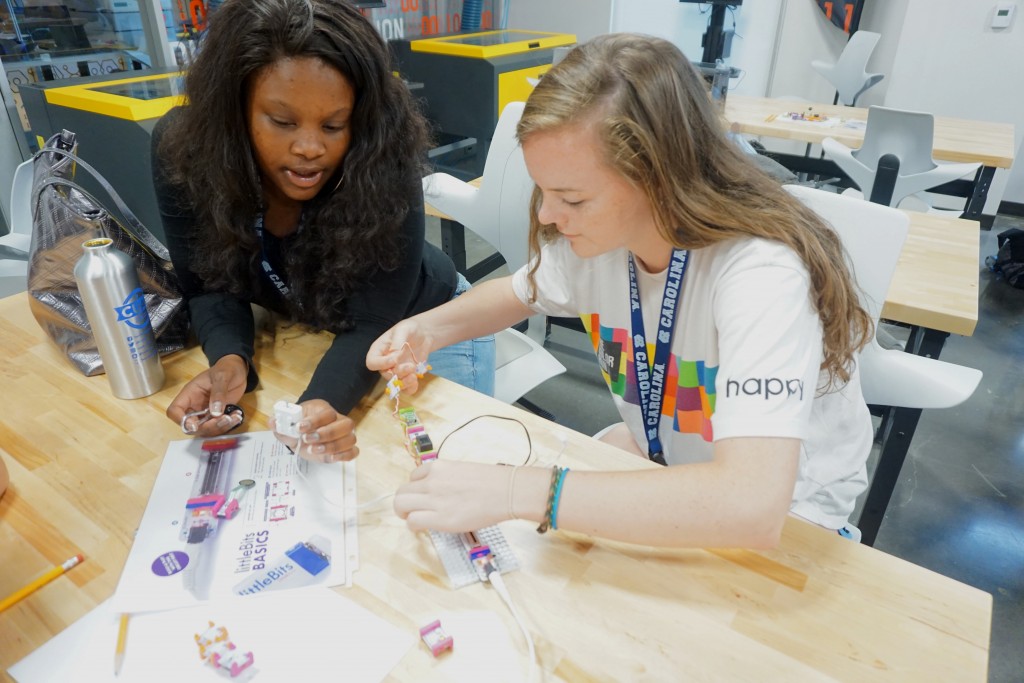Local HS students spend week at UNC-Chapel Hill immersed in energy, climate science
September 5, 2016
Twenty-eight high school students from Durham and Orange counties recently spent a week learning about the connections between climate and energy at the Climate Leadership and Energy Awareness Program (Climate LEAP) summer institute as part of a yearlong student science enrichment program.
Throughout the week, students interacted with scientists, graduate students and educators and participated in discussions, field trips and hands-on lab activities to increase their knowledge of climate change, energy science and sustainability.
“The program is intended to inspire students to take this knowledge and apply it to their daily lives, their academic pursuits, and their careers,” said Program Director Dana Haine.
This year, students had the opportunity to learn about climate change science from professionals such as Chip Konrad, the director of the Southeast Regional Climate Center and associate professor in Geography at UNC-Chapel Hill; Greg Fishel, a WRAL TV meteorologist; and Megan Rodgers, an environmental research assistant at the Institute for the Environment.
Students were also exposed to people working to find solutions to address climate change and in the process learned about careers in science and engineering.
Haine said that showing students how scientists and engineers are working to develop technologies that promote energy efficiency or renewable energy provides students with an awareness that real people are working on solutions to today’s environmental challenges.
Climate LEAP also provides students with the opportunity to learn about current energy technologies through hands-on learning experiences.
One such activity was conducted in the new Murray Hall Makerspace where participants used Lego-inspired, electronic building blocks called littleBits to create battery powered contraptions. With the circuitry already in place in each littleBit, all the students had to do was use their creativity to create a “smart” gadget that could be used to conserve energy in the home.
“By providing students the opportunity to engage in engineering challenges using technology like littleBits, my goal is to show them that they too can be innovators and thus part of the solution,” she said.
A participant in this year’s program said that the hands-on activities were her favorite, but she also enjoyed meeting people who were devoting their lives to a topic that concerned her.
“Going to school, we might have one class that talks about climate change, but no one really seems that interested in it. Here I get to learn more about it and meet with people from other schools who are just as interested and concerned as I am,” she said. “I loved everything we’ve done over this past week.”
This program, now in its seventh year, is free for students and is offered by the UNC Institute for the Environment’s Environmental Resource Program in partnership with the UNC Department of Physics and Astronomy. Climate LEAP is funded through a grant by the Burroughs Wellcome Fund. Learn more about Climate LEAP here: https://ie-old.sites.unc.edu/climateleap/



